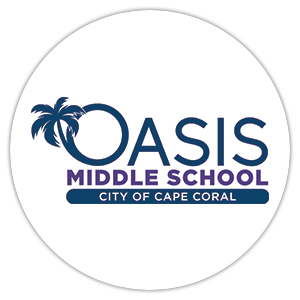Illness Policy
- Illness Policy 10.2024.pdf (1013.3 KBs)
ILLNESS GUIDELINES
Deciding when to keep your child home from school can be difficult. This guideline will help you decide when a child is sick and needs to stay at home. Parents should contact the school and describe the illness and symptoms. If a medical provider makes a specific diagnosis (such as strep throat, conjunctivitis or chicken pox), let school staff know. For specific school policies please refer to the school handbook.
There are three reasons to keep (exclude) sick children from school:
- The child does not feel well enough to participate comfortably in usual activities, such as with extreme signs of tiredness or fatigue, unexplained irritability or persistent crying.
- The child requires more care than the school staff is able to provide without effecting the health and safety of the other children.
- The illness is on the list of symptoms or illness for which exclusion is recommended. The following list gives guidelines and recommendations for exclusion from school due to illness.
Children with minor illness need not be excluded unless one or more of the following exists:
Legally, students may not be present in a school in session without
immunizations. For more information contact:
(239) 337-8244.
ILLNESS OR SYMPTOM - IS EXCLUSION NECESSARY?
Chicken Pox Yes - A child with uncomplicated chicken pox may return when blisters have dried and crusted (usually 6 days).
Conjunctivitis (pink or red mucous or pus draining from the eye) Yes – May return 24 hours after treatment begins. If your with thick health provider decides not to treat your child, a note is needed.
Coughing (severe, uncontrolled coughing or wheezing, rapid or difficulty in breathing) Yes - Medical attention may be necessary. Note: Children with asthma may be cared for in school with a written health care plan and authorization for medication/treatment.
Diarrhea with illness (vomiting, fever, rash) Yes – May attend if cause of diarrhea is not illness related, caused by antibiotics or food sensitivity Diarrhea: e.g. stools that are watery and frequency is twice what is usual
Fever Fever is an elevation of body temperature above normal. Yes - Follow the 2020-2021 Illness Policy.
Fifth’s Disease No - child is no longer contagious once rash illness appears.
Headlice Yes - May return after treatment and removal of all live lice and nits from hair.
IMPETIGO/ STAPH/ MRSA Yes – May return 24 hours after treatment starts. Wound must be covered with dressing taped on all 4 sides.
Body Rash Yes - Seek medical advice. Any rash that spreads quickly, has open, weeping wounds and/or is not healing should be evaluated. May return to school when medical provider determines that illness is not communicable.
Mild Cold Symptoms (stuffy nose with clear drainage, sneezing, mild cough) No – May attend if well enough to participate in school activities.
Ringworm Yes - May return after treatment begins. Area should be covered while in school.
Roseola Yes – seek medical advice.
Scabies Yes – May return after treatment is started with note from medical provider.
Strep Throat Yes – May return after 24 hours of antibiotic treatment and no fever for 24 hours.
Vaccine Preventable Diseases (mumps, measles, whooping cough) Yes – until judged not infectious by a medical provider.
Vomiting Yes – Must be vomit free for 24 hours before returning to school.
Note: Observe for other signs of illness and for dehydration.
Developed by The Children’s Hospital School Health Program, Denver, CO (303)-281-2790, 1995, revised 1999, 2001, 2003
Revised 2009, for use by Christa McAuliffe Charter School Cape Coral, FL. (239) 283-4511.
References
- American Academy of Pediatrics, American Public Health Association, National Resource Center for Health and Safety in Child Care, Caring for Our Children: National Health and Safety Performance Standards, Second Edition, Elk Grove Village, IL 2002



